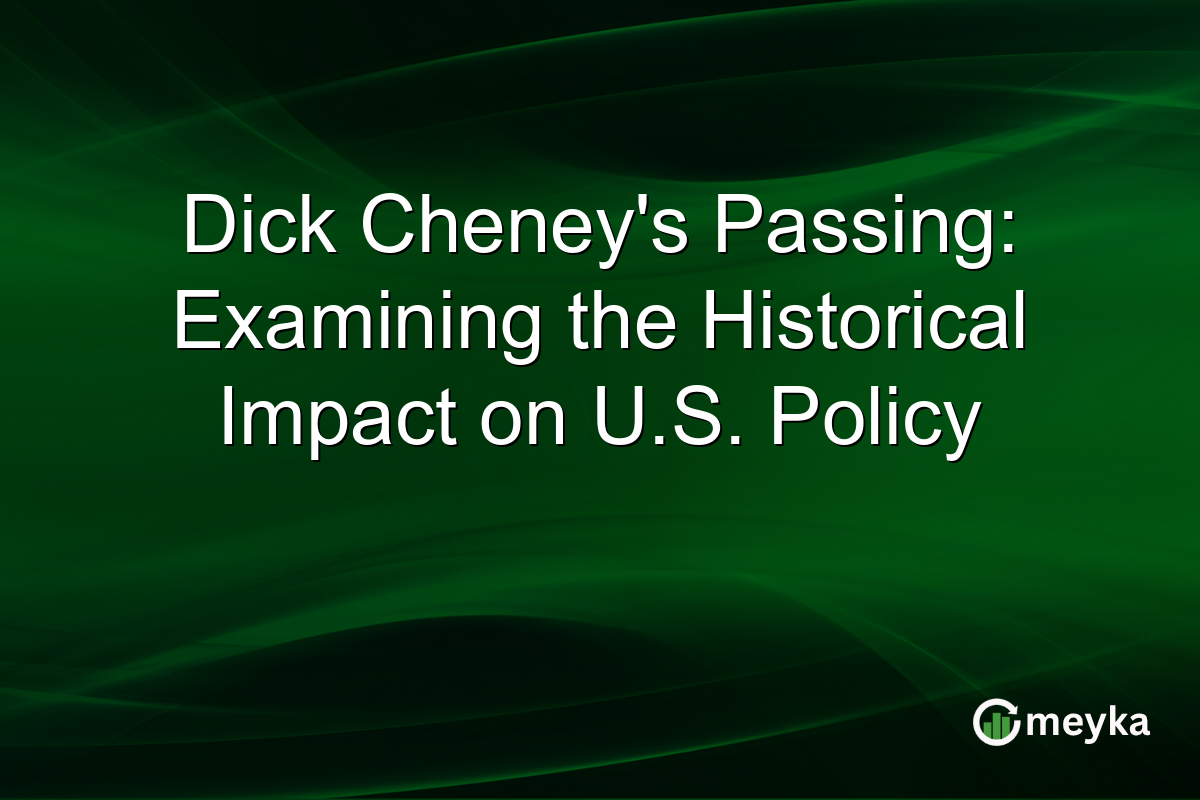Dick Cheney’s Passing: Examining the Historical Impact on U.S. Policy
Dick Cheney, the former U.S. Vice President who served under George W. Bush, has left a lasting legacy that continues to influence U.S. policy today. Cheney’s tenure was characterized by bold economic policies and decisive wartime strategies. As discussions around his legacy gain traction, we’re prompted to examine how his actions have shaped current policy directions. This exploration reveals Cheney’s lasting impact on the nation’s governance and political landscape.
Continue Reading on Meyka
This article is available in full on our main platform. Get access to complete analysis, stock insights, and more.
Read Full Article →





